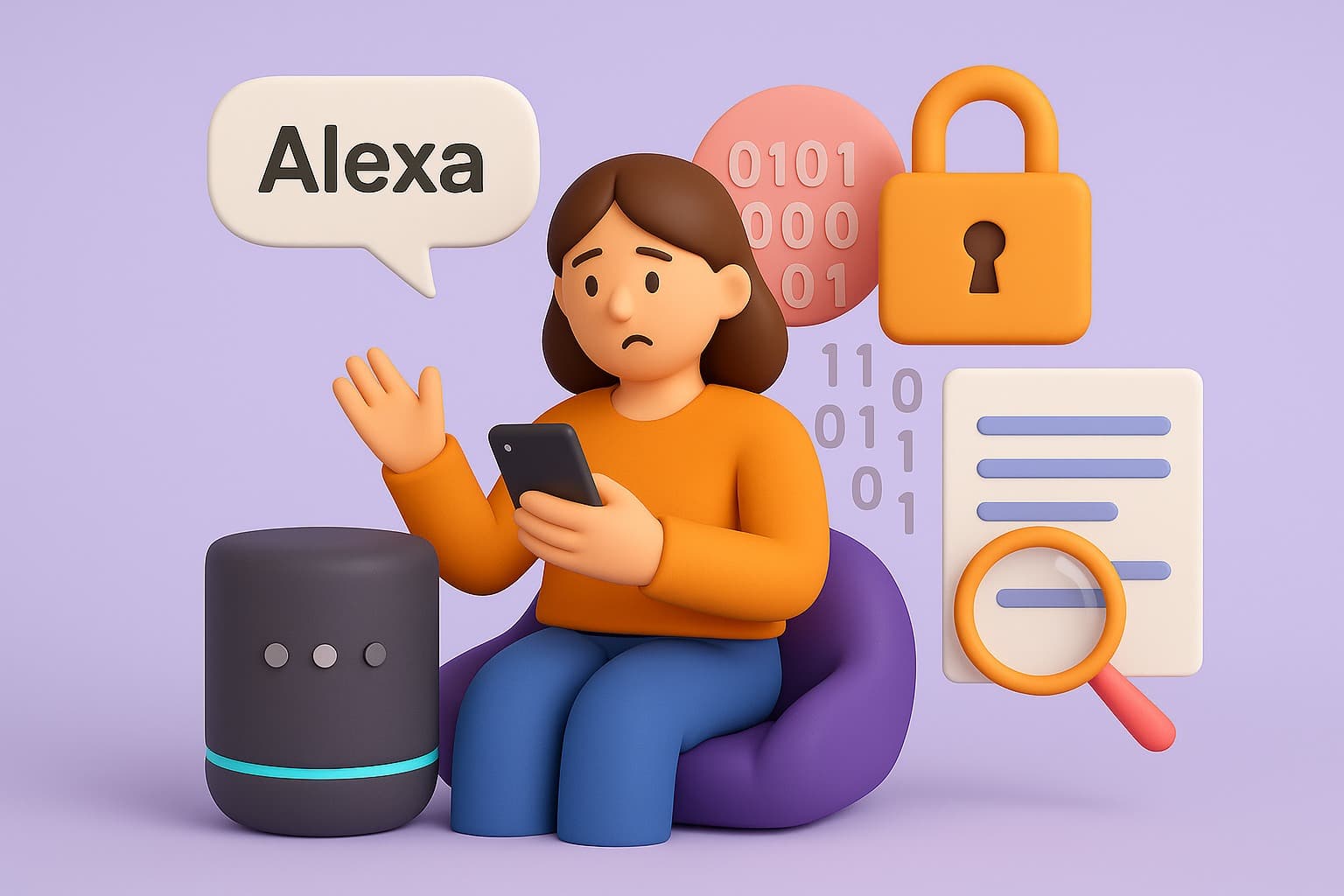Alexa, Are You Selling My Secrets? The Hidden Privacy Costs of Voice Search

When Convenience Starts Listening
When Amazon first introduced Alexa, it felt like magic.
You could say, “Alexa, play Fleetwood Mac,” and a disembodied voice would answer like a polite genie from the cloud. No typing, no tapping, no thinking — just pure convenience.
But that same magic trick hides a darker one: your voice is data, and every time you speak to Alexa, that data can be stored, transcribed, analyzed, and shared.
Voice assistants have become the microphones of modern life — always listening, always improving, and always learning more than you realize.
How Voice Assistants Actually Hear You
Let’s clear up one myth right away: Alexa doesn’t record everything all the time.
But it is always listening for its “wake word.”
The instant you say “Alexa,” it starts streaming audio to Amazon’s servers for processing.
That short burst of sound — and sometimes a few seconds before and after — gets stored in your Amazon account, along with a timestamp, your device ID, and your approximate location.
The recordings are analyzed to “improve accuracy.” Some are even reviewed manually by Amazon employees and contractors.
You can actually hear your own recordings in the Alexa app under Settings → Alexa Privacy → Voice History.
If you’ve never done it, prepare to be unsettled.
The Hidden Costs of Convenience
Most people trade privacy for convenience without thinking.
“Alexa, what’s the weather?” feels harmless — until you realize how those small interactions add up.
Each voice command reveals a fragment of your daily life:
- When you wake up (“Alexa, good morning”)
- What you eat (“Alexa, order pizza”)
- Who you talk to (“Alexa, call Mom”)
- What you watch, buy, or read
On their own, they’re trivial. Together, they form a behavioral fingerprint that can be used for targeted ads, cross-device tracking, and predictive profiling.
This data isn’t only valuable to Amazon — it’s gold for advertisers, insurers, and data brokers.
What Happens to Your Voice Data
Amazon’s official policy says it may use voice recordings to “train and improve Alexa.”
That’s corporate-speak for: your voice is a free dataset for machine-learning models.
While Amazon anonymizes samples, “anonymized” doesn’t always mean safe.
Researchers have shown that with enough metadata — device IDs, account activity, regional accents — users can often be re-identified.
In 2019, Bloomberg revealed that Amazon employees regularly listened to Alexa recordings. Some included sensitive moments like private conversations and even distress sounds.
Amazon responded by saying those samples helped “enhance product performance.”
Translation: the system works best when you help it spy on you.
The Real Problem: Data Doesn’t Stay Put
Even if you trust Amazon (and that’s a big if), your data doesn’t live in a vault.
It moves — between servers, teams, and sometimes third-party contractors.
Amazon also shares Alexa data with “skills” developers — the creators of voice apps that handle everything from smart lights to shopping lists.
Each of these developers may have their own privacy policies, security standards, and, occasionally, vulnerabilities.
Once your voice data leaves Amazon’s walls, there’s no guarantee it stays private.
And unlike cookies or browser data, you can’t delete your voice once it’s processed, transcribed, and fed into models.
How to Reclaim Control
You don’t have to toss Alexa out the window (tempting as that may be).
Here’s how to limit what she knows about you:
-
Delete Voice History Regularly
Alexa app → Settings → Alexa Privacy → Review Voice History.
Delete recordings manually or set auto-delete (3 or 18 months). Or just say:
“Alexa, delete what I just said.” -
Turn Off Voice Purchasing
Prevents accidental orders — and impulse buys. -
Mute the Microphone When Not in Use
Press the mic button on your Echo. Red light = safe. -
Limit Third-Party Skills
Each skill is a potential privacy leak. Disable what you don’t use. -
Use a Burner Email for Setup
The stealth move.
Register Alexa with a burner email so all spam, confirmations, and tracking hit a decoy inbox — not your real one.
You still get convenience — without the data dragnet.
Beyond Alexa: The Voice Data Economy
Amazon isn’t alone. Google Assistant, Siri, and even car infotainment systems collect similar voice data.
They justify it as “improving AI,” but the byproduct is a vast map of human behavior.
Voice recognition isn’t just about commands; it’s about emotion, intent, and mood.
AI models can already infer whether you’re stressed, sick, or lying based on tone alone.
Combine that with smart-home data — when lights turn on, how long the TV runs — and your home becomes a living surveillance dataset.
Privacy isn’t being stolen in chunks anymore.
It’s being eroded one “OK Google” at a time.
Why the World Needs More Silence
We once feared Big Brother.
Now we casually invite him into our kitchen to set timers and tell jokes.
The line between “helpful assistant” and “listening device” has blurred beyond recognition.
Maybe it’s time to rediscover a little silence.
Because silence, in the digital age, isn’t empty — it’s ownership.